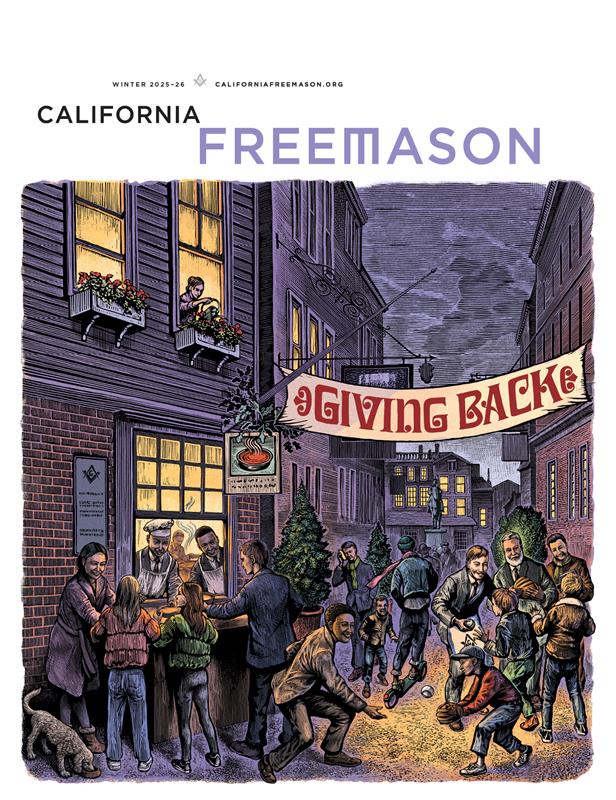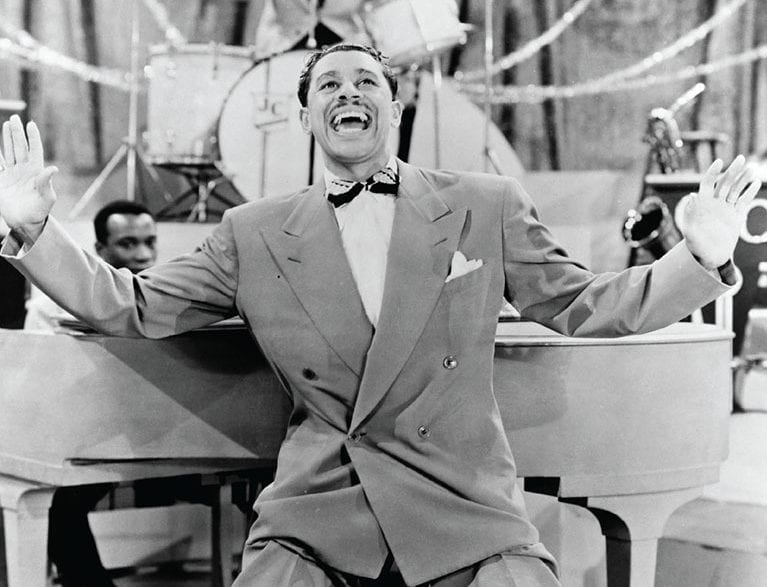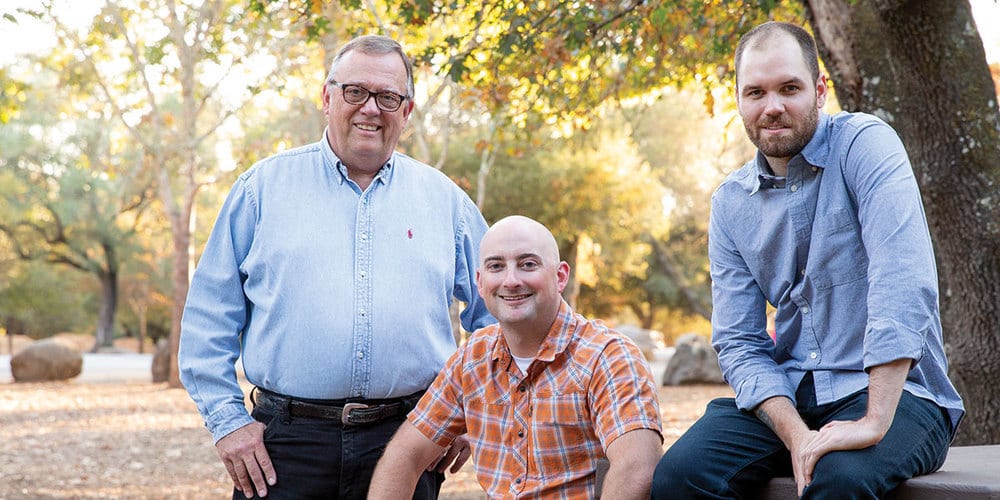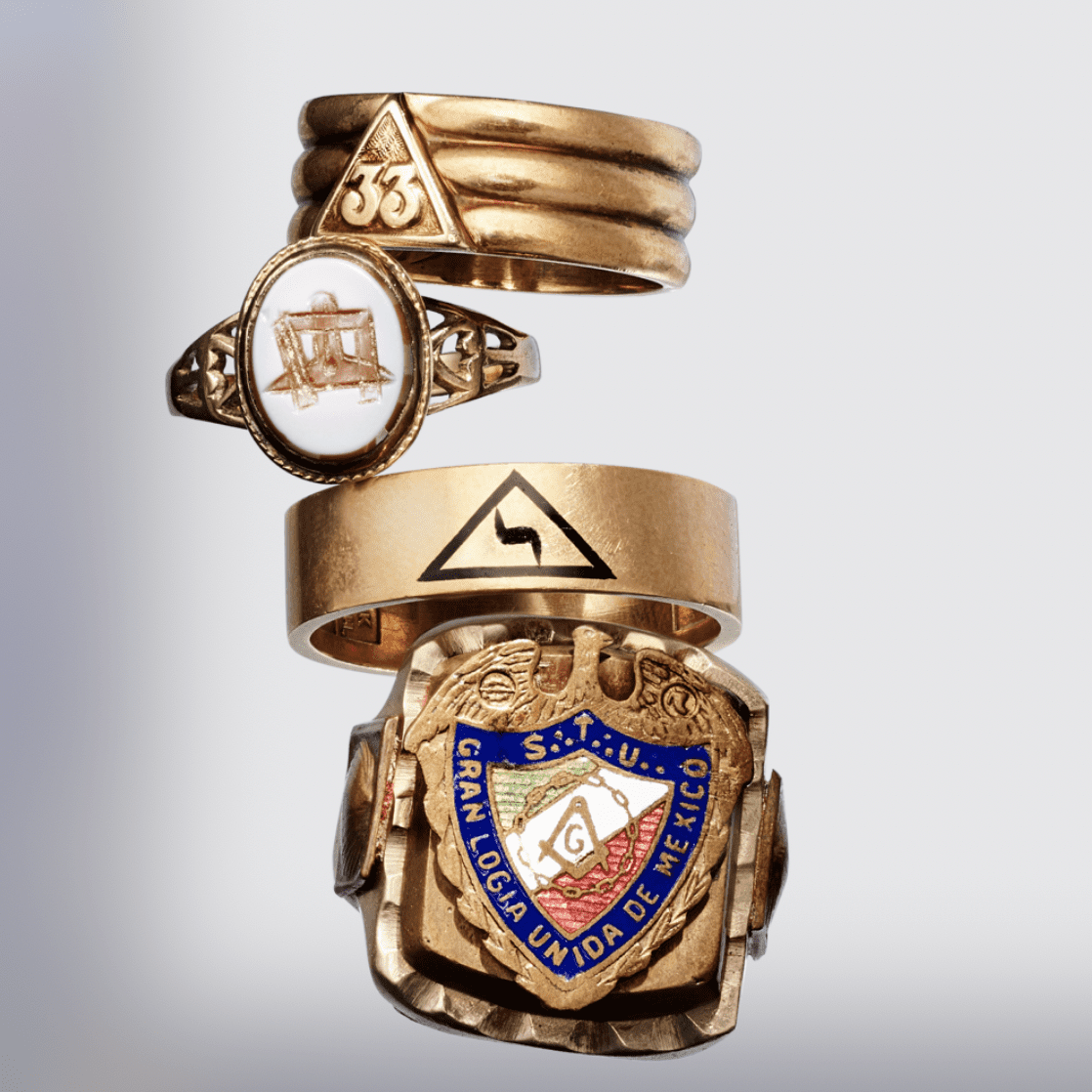
DESIGNING THE FUTURE
next up
MEET THE 20-AND 30 SOMETHING PUSHING THE FRATERNITY FORWARD.
By Ian A. Stewart
Want to know what the Freemason of tomorrow looks like? Then take a glance down the tail end of the membership rolls, where a generation of Millennial and Gen Z Masons are already beginning to reshape the fraternity in their image.
While the youngest segment of Masons are a diverse bunch, representing all manner of professions, interests, and backgrounds, they share a desire to engage with something bigger than themselves—something extraordinary. For some, that means forming a deep connection with lodge brothers, people they’d never meet otherwise; for others, it’s finding a pathway to spiritual and intellectual meaning. In both cases, these young Masons say they want—and expect—a transformative experience within the lodge that enhances their lives outside it. “A lot of younger Masons are looking for something profound,” says 31-year-old Mark Stroup of Las Palmas-Ponderosa No. 366. These Masonic exemplars are having a deep impact on both their lodge and community—and, in so doing, represent Masonry’s vanguard, leading the fraternity boldly into the future.
A New Look in La Jolla
Name: Alan Clayton
Age: 34
Occupation: Barbershop Owner
Lodge: La Jolla No. 518
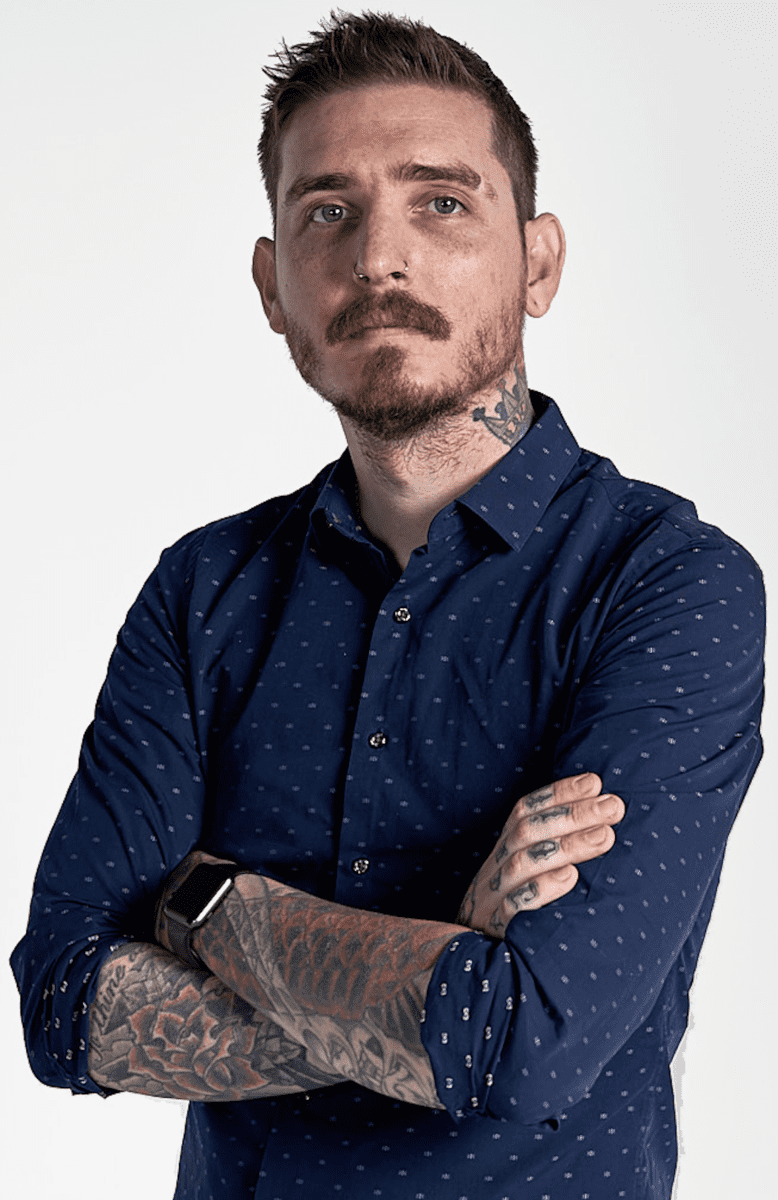 When Alan Clayton walked into the lodge hall of La Jolla No. 518 for the first time, he didn’t know what kind of reception he’d get. Clayton, a heavily tattooed barber, acknowledges that his ink can invite skepticism in certain situations. But rather than give him the side-eye, the Masons of La Jolla No. 518 welcomed him right away. Two of the most senior members of the lodge, Bob Jesse, 93, and Joseph Allen, 84, sat with Clayton during that first lodge dinner and asked him about his work and family. “The longer I’m a Mason, the more I realize that it’s all about the internal qualities of a person,” Clayton says. “The Masons in the room understood that right away. Everyone just got it.”
When Alan Clayton walked into the lodge hall of La Jolla No. 518 for the first time, he didn’t know what kind of reception he’d get. Clayton, a heavily tattooed barber, acknowledges that his ink can invite skepticism in certain situations. But rather than give him the side-eye, the Masons of La Jolla No. 518 welcomed him right away. Two of the most senior members of the lodge, Bob Jesse, 93, and Joseph Allen, 84, sat with Clayton during that first lodge dinner and asked him about his work and family. “The longer I’m a Mason, the more I realize that it’s all about the internal qualities of a person,” Clayton says. “The Masons in the room understood that right away. Everyone just got it.”
“I love that we can hang out at a baseball game and get drinks, and then go behind closed doors and have this completely different relationship. I love that Masonry is a mix of the two.”
That sense of camaraderie suited Clayton to a T, and before long he petitioned to join. Once in, Clayton helped refresh the lodge’s image—not dramatically, he insists, just an update to its look. (A little off the sides, you might say.) “Just little changes I wanted to see,” he says, “to make it more suited to young people joining.” That meant revamping the lodge’s social media pages, particularly on Instagram, and organizing outings to Padres games and the Gulls of minor league hockey. Prior to the COVID-19 lockdown, the lodge was hosting a different outing every week on rotating days, so as many people as possible could participate. In 2019, the lodge named Clayton its Mason of the Year.
That proactive approach is a page taken from his professional life. When the barbershop where he worked came up for sale in 2016, Clayton purchased it himself. “I was afraid someone would step in and treat it differently,” he says. While running the business means added stress and responsibility, Clayton says he’s begun to see that as a positive. “I feel like I can rise to the occasion,” he says. “I’ve found ways to enjoy the pressure—like, I have an opportunity to help my employees make more money, have a better life. That’s a really fortunate position.”
A Table of His Own
Name: Gerson Cortes Palacios
Age: 30
Occupation: Writer
Lodge: Chico-Leland Stanford No. 111
 Gerson Cortes Palacios was a jaded teenager—his words—when he was first exposed to Freemasonry. He was ditching high school in Orange County when a stranger at the library struck up a conversation and mentioned his lodge in Mexico. “It really stuck in my mind,” Palacios says. “I could tell this guy really cherished it.”
Gerson Cortes Palacios was a jaded teenager—his words—when he was first exposed to Freemasonry. He was ditching high school in Orange County when a stranger at the library struck up a conversation and mentioned his lodge in Mexico. “It really stuck in my mind,” Palacios says. “I could tell this guy really cherished it.”
After graduating from college in Chico and feeling an urge to put down roots, he decided to act on that memory. He reached out to Chico-Leland Stanford Lodge No. 111 and was invited to a stated meeting dinner. Still, he was apprehensive and a little intimidated at the prospect of joining a group that, frankly, didn’t outwardly resemble him. However, he says, “I remember sitting down at the closest table, and everyone started talking about Game of Thrones. In my mind I was like, ‘Oh, OK, I’m sitting at the nerd table! I’ve found my people!’ That really broke the ice for me.”
Palacios kept coming back for Thursday morning coffee meetings, growing ever more comfortable with the other members. “These were mostly older dudes, a lot of them retired, but they were hilarious, really funny guys,” he says. “That kind of made the veil of mystique a little more translucent and less scary. It’s just dudes hanging out.”
“It would be great for us to connect better across countries—to tap into that huge network. We could make some amazing changes in the world."
Now Palacios is assistant secretary for the lodge, and he’s spending the shutdown finishing his first novel, a work of fantasy that draws on his anthropology studies. “It’s about this idea of an unbreakable connection between humans that we don’t realize we have,” he says. “We have so much more in common than we like to acknowledge.”
Confidence Man
Name: Hrag Bekerian
Age: 31
Occupation: Nursing Home Administrator
Lodge: Glendale No. 368, Round Table No. 876
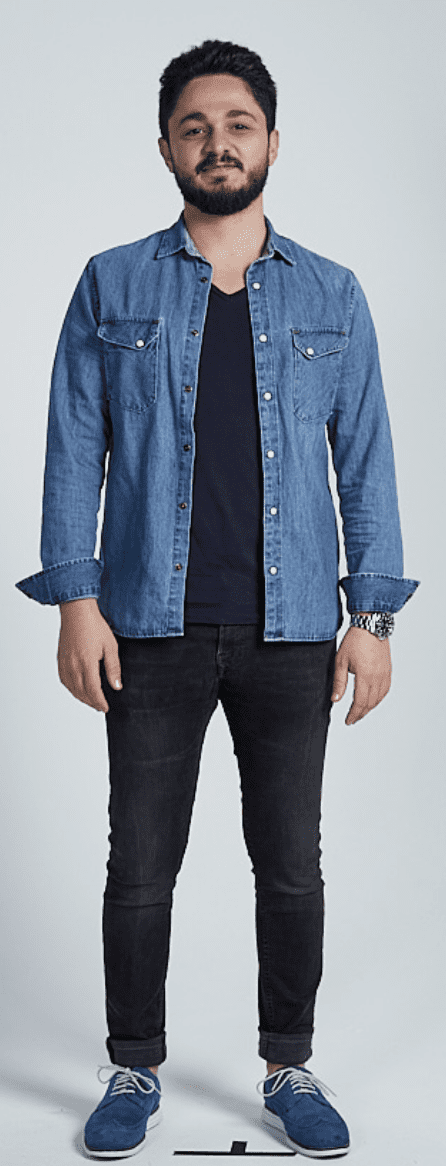
Hrag Bekerian was just a year into his new job as executive director of the Gem Transitional Care Center when the pandemic hit. Nursing homes like his, especially those serving high-acuity patients, found themselves in the virus’s crosshairs. Almost overnight, and with official guidance changing from one moment to the next, Bekerian was responsible for overseeing a massive operational response.
That’s a tall order for even the most seasoned nursing-home administrator. For Bekerian, it was a baptism by fire. At the Pasadena facility, more than 50 residents tested positive. “There was a lot of stress,” Bekerian says. “I had to try to stay calm and keep my confidence level high.”
It was a trying experience, but one that forced Bekerian to grow as a leader. “There are things you can’t understand until you’re in the hot seat,” he says. He fell back, in part, on his experience as lodge master of Glendale No. 368, during which he learned to exude calm while learning on the fly. Though he was only 27 at the time, his lodge brothers looked to Bekerian to keep the 115-year-old lodge on track. In 2019, Bekerian reprised his role as lodge master at the newly chartered Round Table No. 876. Bekerian was drawn to the close-knit group there, which reminded him of the tight social circles he’d known growing up in Aleppo, Syria, before he moved to Southern California with his family at 13.
“We have to make sure we’re finding ways to attract younger people. We have to show them the benefits of joining.”
At both lodges, Bekerian says, he’s drawn inspiration he puts into practice in his professional world. “A lot of the Masonic practice is about using it in real life,” he says. “Absolutely, Freemasonry has shaped me to be what I am today.”
Learning As You Go
Name: Joe Rezendes
Age: 22
Occupation: Software Engineer
Lodge: Logos No. 861, Antioch-Brentwood No. 175
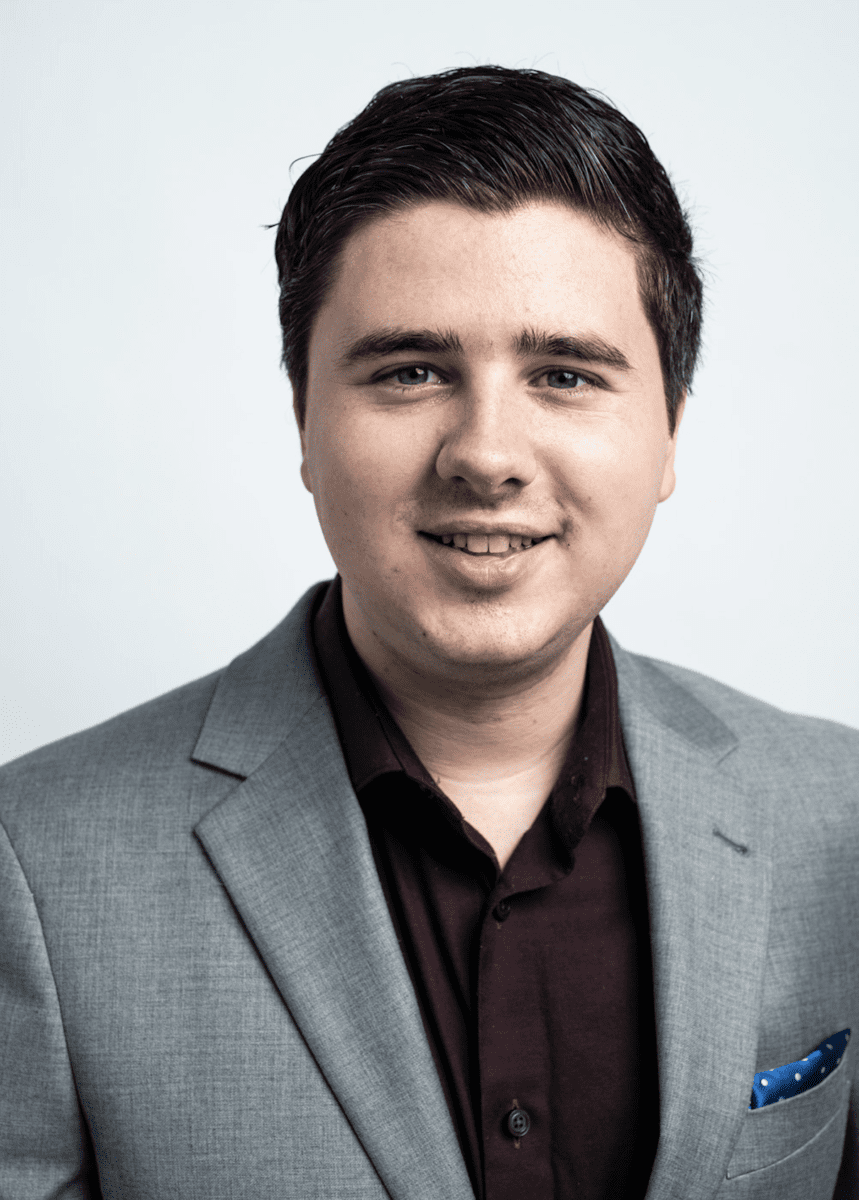 Joe Rezendes has always learned at his own pace: on the go. Which explains how, at 18, he got his start learning computer coding alongside a class of fifth graders—and also how, later, he wound up designing the curriculum his own teachers used to instruct him.
Joe Rezendes has always learned at his own pace: on the go. Which explains how, at 18, he got his start learning computer coding alongside a class of fifth graders—and also how, later, he wound up designing the curriculum his own teachers used to instruct him.
Rezendes has a habit of immersing himself fully in his interests, whatever they are. Already something of a polymath, he volunteered during college to teach at a nonprofit children’s coding program, despite having no background in the subject. He simply stayed a chapter ahead of his students and learned alongside them. The work resonated, and he devoted himself to learning as much as he could about front-end and back-end systems design. By the time he enrolled in an adult coding boot camp in San Francisco, he was so proficient that he was asked to help come up with the group projects his fellow students were being taught. “I guess that was a little unusual,” Rezendes concedes with a laugh.
“I see Freemasonry becoming more about
education—things like ‘What does it mean to be intellectually honest?’ Young people are looking for things that give them a sense of purpose.”
That kind of eagerness permeates his nonprofessional pursuits as well. At just 13, piqued by an interest in philosophy and references to esotericism, he approached his nearest Masonic lodge, Antioch-Brentwood No. 175, to learn as much as he could about Freemasonry. (Five years later he petitioned to join; in 2018, he affiliated with Logos No. 861.)
The same characteristics of curiosity and humanism are evident in Rezendes’ software designs, many of which have a handmade, almost whimsical quality. (A popular project of his is called Whoa.css, an open-source library of kitschy animated effects users can add to their webpages.) “For me, coding is the best way to practice creative expression,” he says. “It really is building something out of nothing.”
Upstanding Citizens Brigade
Name: Valejo Johnson
Age: 34
Occupation: Computer Engineer
Lodge: Los Angeles No. 42
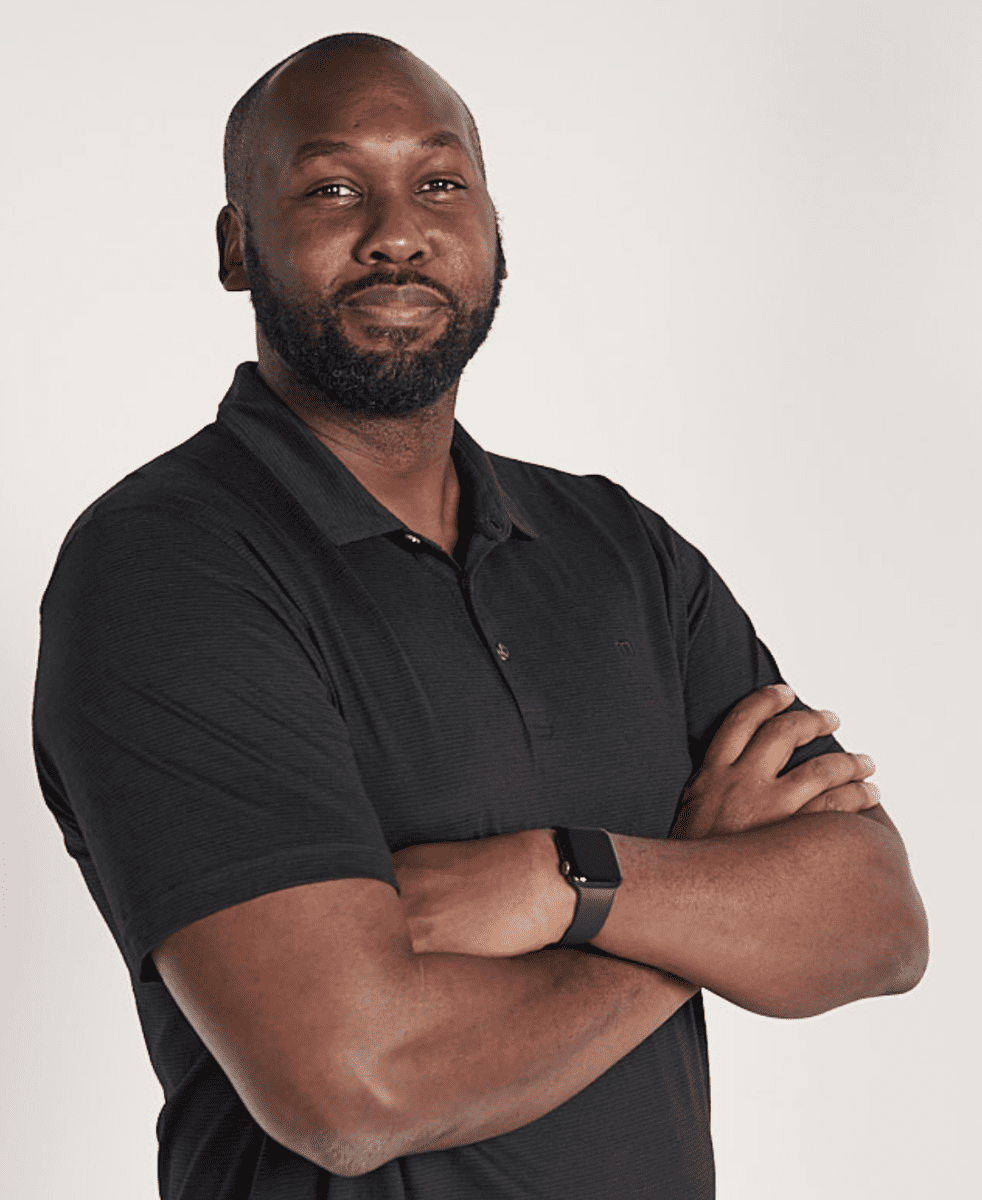
By his own admission, Valejo Johnson had to grow up fast. When Johnson was just 5 years old, his father was diagnosed with HIV, the scope of which did not become entirely clear to Johnson until many years later. With one parent seriously ill and the other in a bitter fight over visitation rights, he says, he was drawn to the people around him who exuded stability.
He joined the military at 17 and was deployed twice to Iraq and once to Afghanistan. He also served in Germany, Italy, Djibouti, and all over the United States, eventually making sergeant. After returning to civilian life, he earned a degree in information technology and moved to Los Angeles to break into the tech industry. Looking for community, he was reminded that many military officers he’d admired were Freemasons. So he approached Los Angeles Lodge No. 42, where he met a group of men whom he immediately felt connected to, including current senior deacon Hal Sparks.
“I used to think of Masonry as a white-guy, middle-age thing. But in the military I met a lot of guys who loved being Masons. I want to show people that this isn’t a secret society. We’re people like you. We’re all on the journey to be better people.”
The lodge spoke to Johnson’s yen for self-improvement and his interest in morality. “It was directly in line with all the good men I’d met in my life,” he says. “I wanted to be around people who were responsible, who made good decisions. I couldn’t hang out with people who weren’t like that.”
Ironically, as Johnson recently moved out of town, he’s found himself drawn more than ever to his lodge brothers.
As an IT engineer for Hulu, he’s free to work remotely, and recently purchased a home in Las Vegas. But with a background in software, he was among the first to suggest getting lodge members together online. Now he hosts Google meetups every Tuesday. “It’s a way to keep the brotherhood alive,” he says. “Even with the virus, I don’t see that ending anytime soon.”
The Ringer
Name: Elway Balmorez
Age: 34
Occupation: Registered Nurse
Lodge: Gen. Douglas MacArthur No. 853
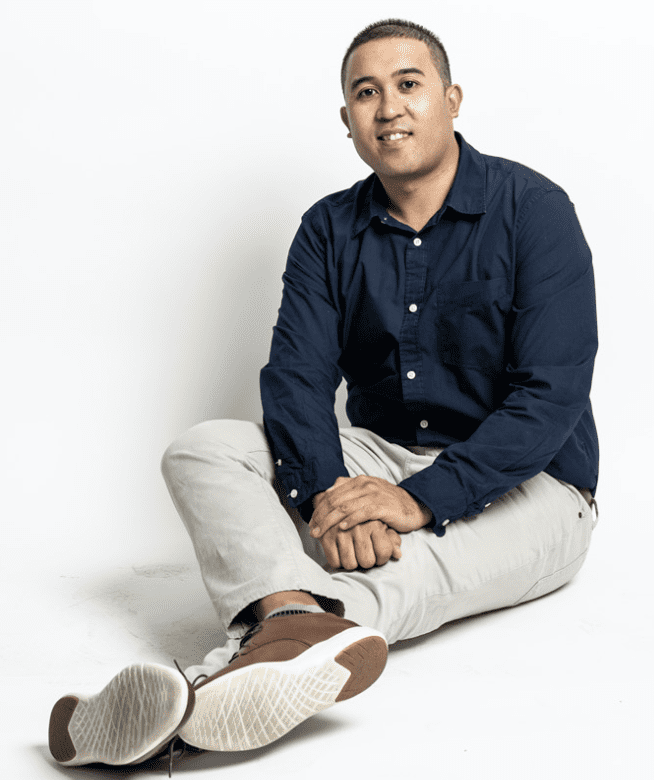 As a single child of divorced parents, Elway Balmorez grew up wanting an older brother. Finally, at age 28, he got one. Or rather, he got 98 of them. “This is beyond a fraternity—it’s a family,” Balmorez says of Gen. Douglas MacArthur Lodge No. 853 in Sacramento.
As a single child of divorced parents, Elway Balmorez grew up wanting an older brother. Finally, at age 28, he got one. Or rather, he got 98 of them. “This is beyond a fraternity—it’s a family,” Balmorez says of Gen. Douglas MacArthur Lodge No. 853 in Sacramento.
Balmorez spent his childhood in Santa Cruz, where his parents had immigrated from the Philippines in the late 1970s, to work in the fields of Watsonville and Salinas. After spending high school in South San Francisco, he returned to his parents’ homeland on a college basketball scholarship and earned a nursing degree.
“I think by having younger representatives out there, people will think, ‘Maybe this is something for me.’”
He came home to the U.S. after college and found work in Sacramento, where he met past lodge master Enrique Coscolluela of Gen. Douglas MacArthur No. 853. Balmorez petitioned to join, and at age 28 was raised a Master Mason, still one of the youngest members in the lodge. “I could tell these guys cared about one another,” he says. “These are people I can go to at 2 a.m. and say I’ve got a flat tire, and they’ll be like, ‘I’ll be there in 15 minutes.’”
However, Balmorez says it wasn’t until 2017 that he truly earned his place, when the lodge participated in the annual Manlalakbpay na Gurong Mason (“Traveling Master Mason”) weekend held in San Francisco, a large annual gathering of Filipino Freemasons from across the West. The weekend included a basketball tournament, and Balmorez—6-foot-2, with college play on his résumé—was suddenly a hot commodity. Gen. Douglas MacArthur No. 853 won the tournament. “After that, my age didn’t matter anymore,” he says with a laugh.
A Higher Calling
Name: Mark Stroup
Age: 31
Occupation: Psychological Therapist
Lodge: Las-Palmas Ponderosa No. 366
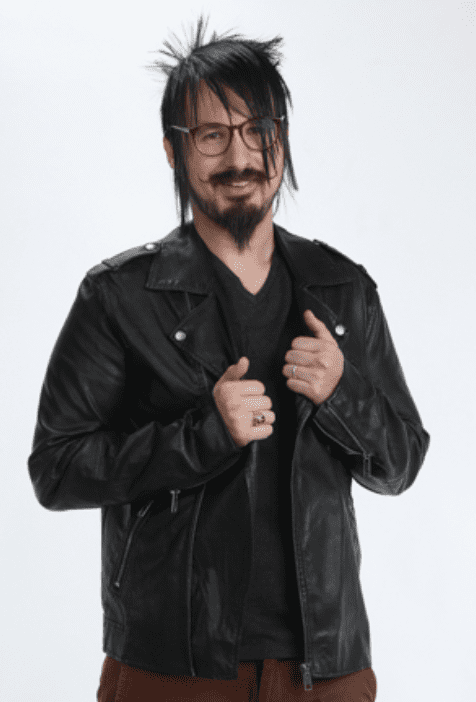
Mark Stroup figures he was 10 years old when he had his first existential crisis. “I remember asking my parents, ‘What else do you do?‘” he says. “‘You go to work, you come home—that’s it?’”
Thus began what’s been a lifelong search for higher meaning for Stroup, a quest that led him to Las Palmas-Ponderosa Lodge No. 366.
Freemasonry, with its expansive symbolic language of morality, spoke to Stroup on a deep level. As a result, he’s risen quickly, becoming his lodge’s first candidate in more than a decade to perform the long-form lectures in degrees. Today he is senior warden and also high priest of the Royal Arch in the York Rite Bodies of Hanford. He also formed a study group for the Scottish Rite Master Craftsman program, and prepares lectures analyzing the degrees. In 2019, he received the rank of Knight Commander of the Court of Honor, making him the youngest such member in the valley. “I really love lecturing and discussing these things with others,” he says. “These are very cryptic mysteries; they deserve contemplation and meditation.”
“If I could make my own fantasy world, there’d be a whole lot of Masons wanting what I’m wanting: to study our mysteries and have deep discussions like a bunch of philosophers.”
As a juvenile psychotherapist for Fresno County, Stroup works with clients who were recently in psychiatric care. He brings the same studiousness and open-mindedness to his professional work as he does to his Masonic pursuits. “A lot of therapy is listening,” he explains. “I guess that’s what I do best. Listening, observing, studying.”
The Rebirth
Name: Chris Carney
Age: 33
Occupation: Actor and model
Lodge: Liberal Arts No. 677
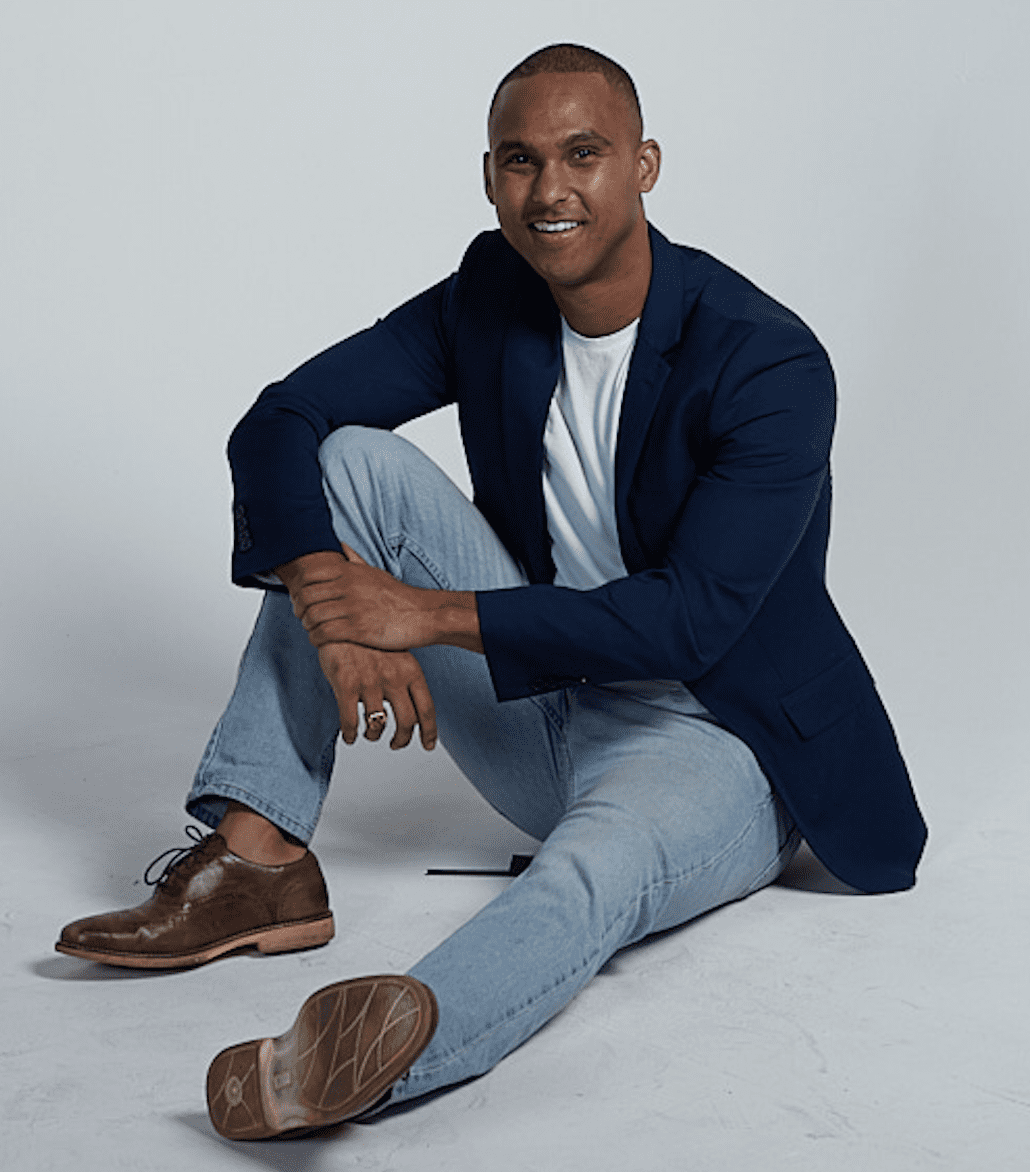 The beginning of Chris Carney’s professional football career was also the end of it. After four years at Kansas State, where he was an All-Big 12 Conference player, his body was a shambles. A meniscus tear left him with a balky knee. Then he developed shin splints. He tore a shoulder ligament. He broke a finger. He had hernia surgery.
The beginning of Chris Carney’s professional football career was also the end of it. After four years at Kansas State, where he was an All-Big 12 Conference player, his body was a shambles. A meniscus tear left him with a balky knee. Then he developed shin splints. He tore a shoulder ligament. He broke a finger. He had hernia surgery.
Carney was invited to training camp with the NFL’s Tampa Bay Buccaneers, yet he was realistic about his chances. Sure enough, he didn’t last long. So he decided to pack up a U-Haul and give his fallback plan a try: move to L.A. and get into acting.
“The thing I’d like to see is more diversity in the
line. Having that will allow people to see
other perspectives.”
It didn’t take long to find work in Hollywood, first in commercials (Pepsi, Caterpillar, Dodge) and eventually acting (on TNT’s The Good Ship, Fox’s 9-1-1, Netflix’s Lucifer). Even with that success, though, he missed football life. “I didn’t have that same camaraderie,” he says. He found it again in Freemasonry. Carney reached out to his uncle, a lodge master in Massachusetts, who provided him with a letter of introduction to Liberal Arts No. 677 in West L.A. “I went in with an open mind,” Carney says. “But a lot of the lessons we were learning translated into my everyday life. Like with acting, you have to have the discipline to sit down and study. And like the 24-inch gauge and figuring out how to divide my time, that translated for sure.”
Now Carney says he’s found a harmony in his personal and professional life—or as much as one can when having to be ready for an audition at a moment’s notice. “Every day is different,” he says. “I never know what to expect. But I’m having fun.”
A Kindred Spirit
Name: Michael Smoot
Age: 33
Occupation: Independent Living Assistant
Lodge: Penrhyn Gold Hill No. 32
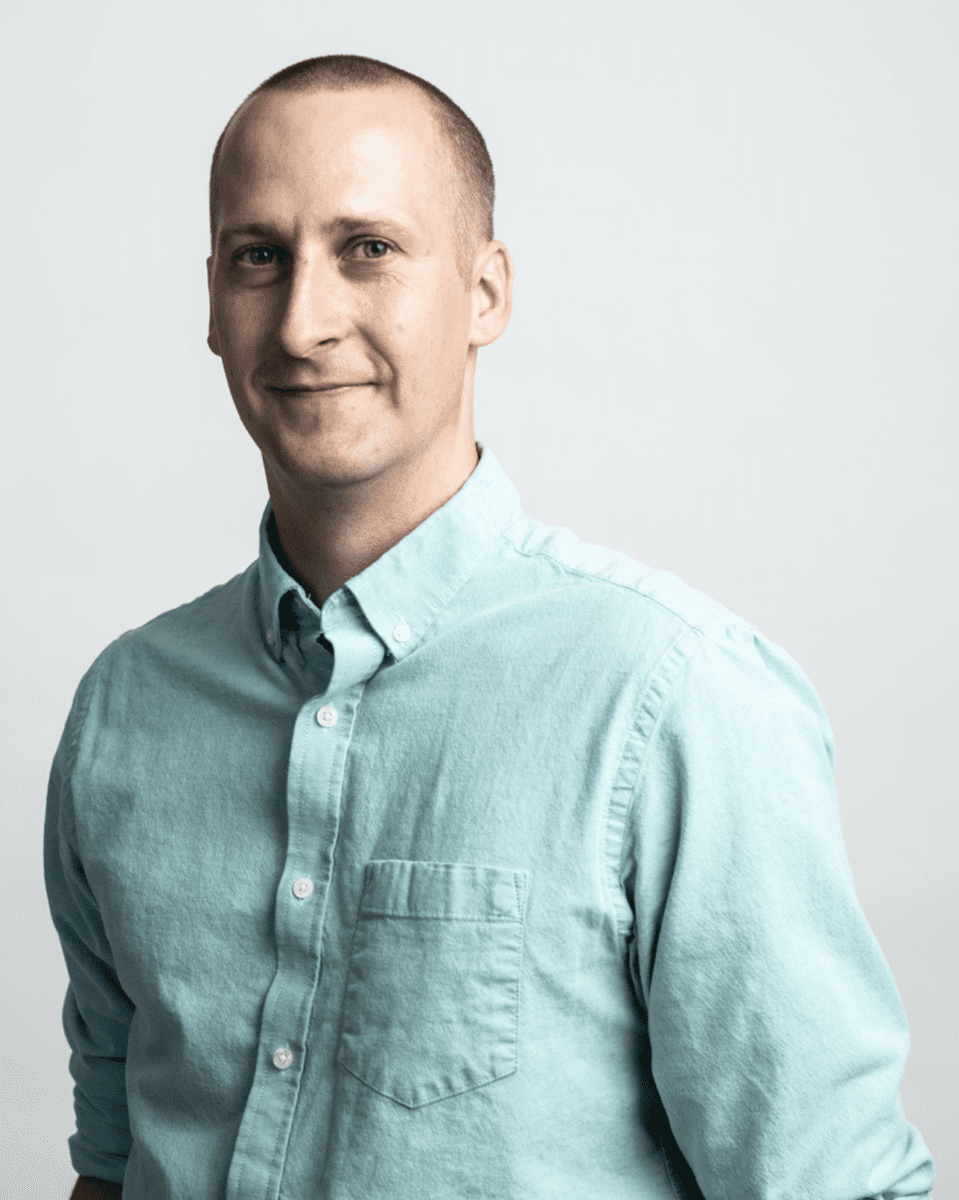 When Michael Smoot takes the plunge, he dives in headfirst. Take Freemasonry: Since being initiated into Penrhyn Gold Hill No. 32 in 2018, he’s amassed a library of nearly 2,000 books on esotericism. He’s visited several nearby lodges. And he named his first son Solomon.
When Michael Smoot takes the plunge, he dives in headfirst. Take Freemasonry: Since being initiated into Penrhyn Gold Hill No. 32 in 2018, he’s amassed a library of nearly 2,000 books on esotericism. He’s visited several nearby lodges. And he named his first son Solomon.
That enthusiasm seems to permeate all of Smoot’s pursuits. Now he’s hoping to bring it to a new profession. Since March, Smoot has been studying to become a member of the sheriff’s department in Placer County. “With everything going on, I’m just hoping to make a positive change,” he says. Smoot’s interest stems from his work as a mental health specialist, in which he meets with adult clients with special needs—typically autism or neurological disorders—to help them develop life skills. “A lot of special needs adults have to interact with the police,” he explains. “And most police don’t have enough training working with them.” Volunteering at local police departments, he decided that he was in a unique position to effect that change from within.
“People want the ritual to seem sacred. It needs to be a two-sided thing, with fun events that people can enjoy, but then also the solemnity of the meetings.”
Growing up in Penryn, Smoot had always been intrigued by the circa-1876 lodge hall above the post office. One day he decided to investigate. He was soon invited to a lodge dinner, where the first person he met was Past Grand Master John L. Cooper III, one of the most active Freemasons of the Sierra foothills. “I had no idea who he was, or what a grand master was, but he was really welcoming and invited me to sit in on his talk after the lodge meeting,” Smoot says. Perhaps realizing he’d found a kindred spirit, Cooper followed up over email to ask Smoot about his growing book collection. Smoot was touched by the gesture, and the two struck up a friendship that continues today. “He’s the most authentic person I’ve ever met,” Smoot says of Cooper. “He just looked me up and sent me an email to ask about me. He couldn’t believe I was still an entered apprentice.
“That’s the cool thing about Masonry,” Smoot says. “Every lodge I’ve been to, everybody has always been that welcoming.”
PHOTO CREDITS:
RUSS HENNINGS/MOONBEAM STUDIOS
WINNI WINTERMEYER
KENNY GILMAN PHOTOGRAPHY
Permission to reprint original articles in CALIFORNIA FREEMASON is granted to all recognized Masonic publications with credit to the author, photographer, and this publication. Contact the editor at editor@freemason.org.
Keep reading by exploring more articles that share common topics.
More from this issue:

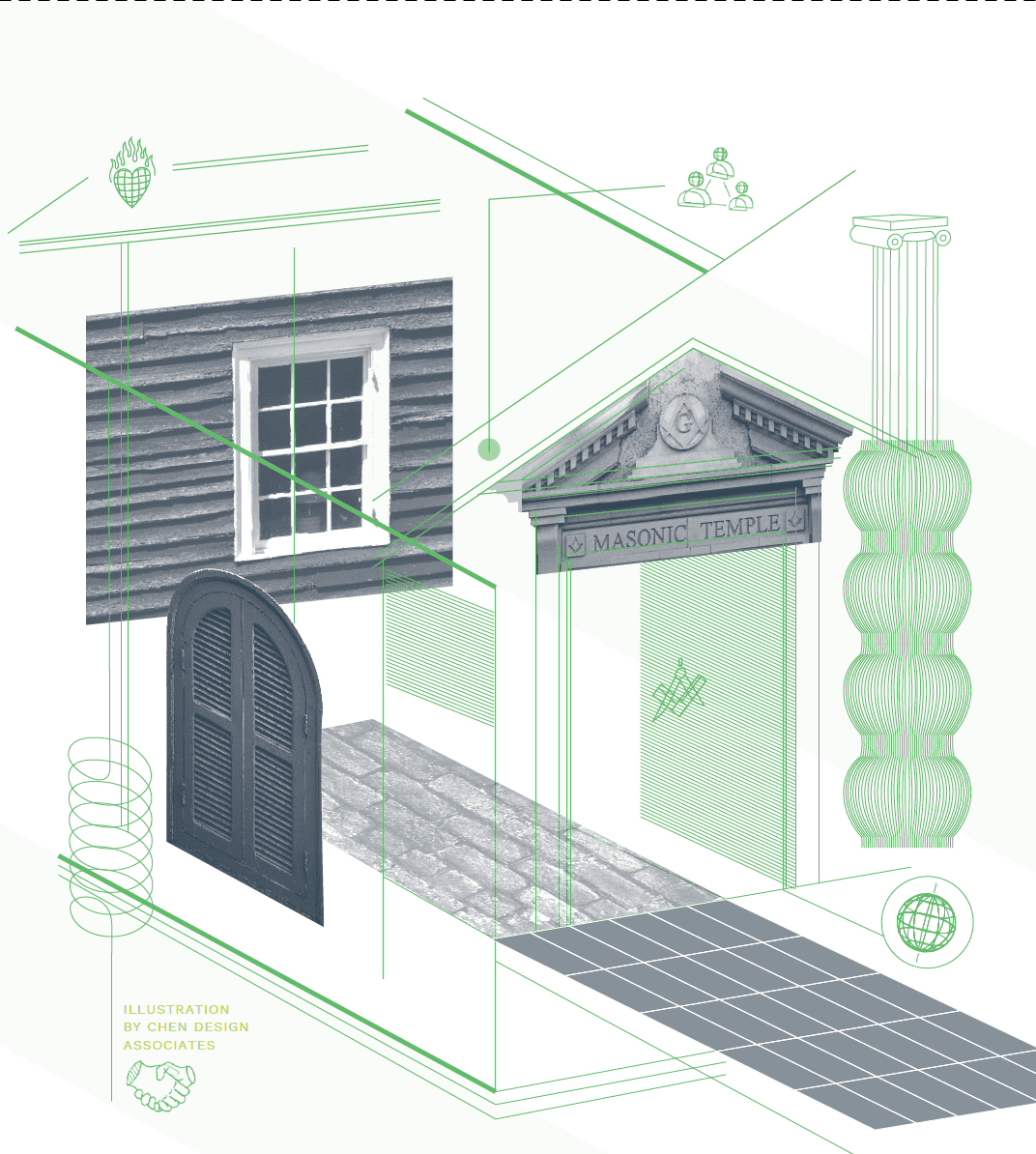
The Deconstructed Lodge
What will a Masonic lodge look like in the future? The answer is already here—and it probably won’t be in a lodge.
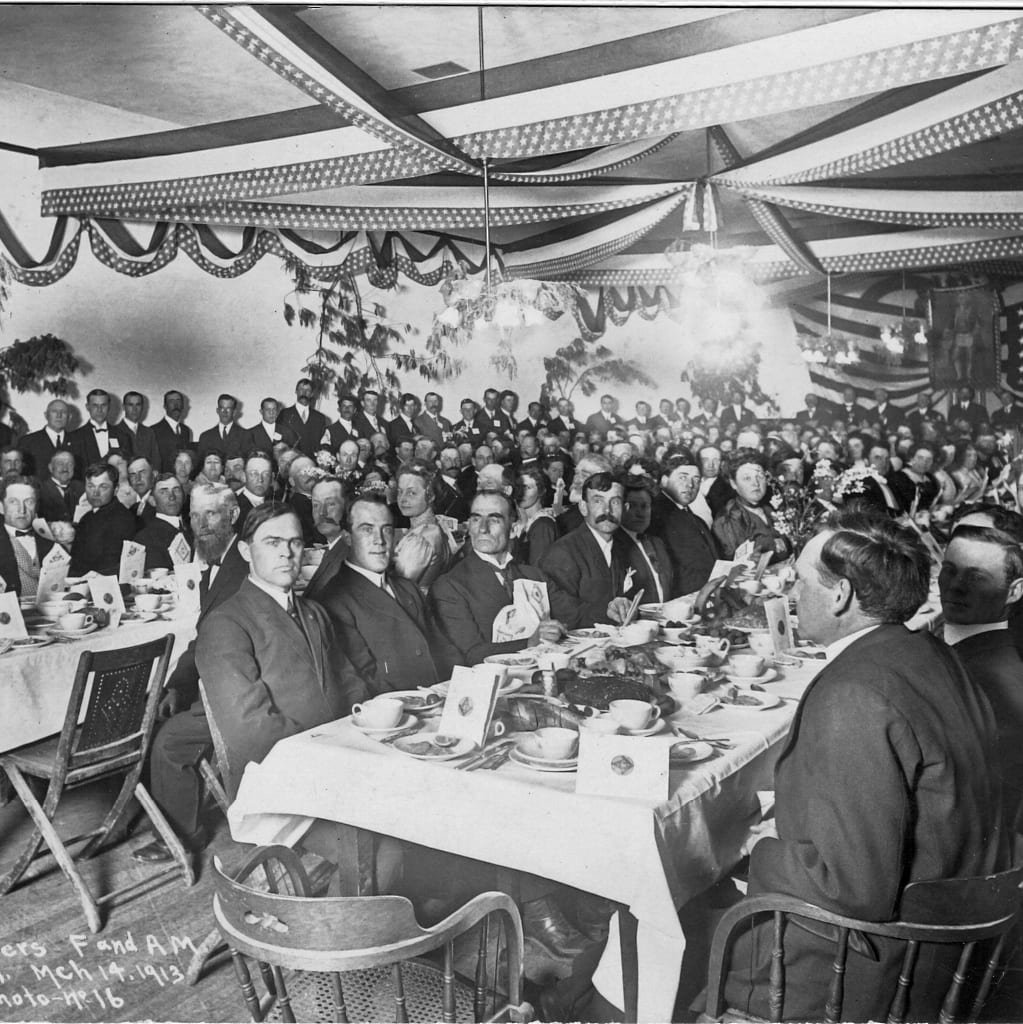
Lodge Profile: The History Makers
A historic lodge celebrates 150 years on the Central Coast.
